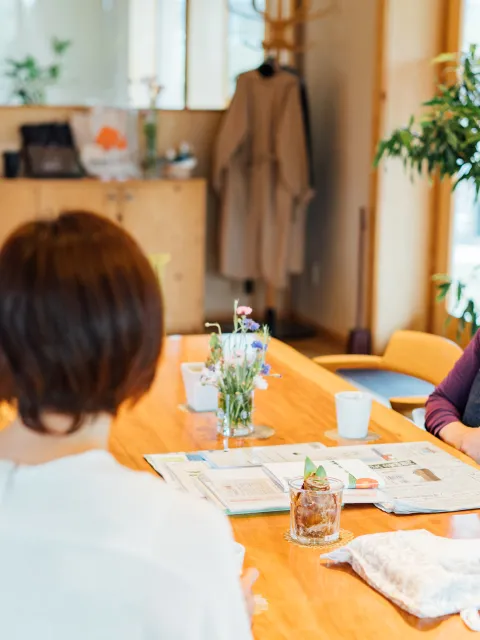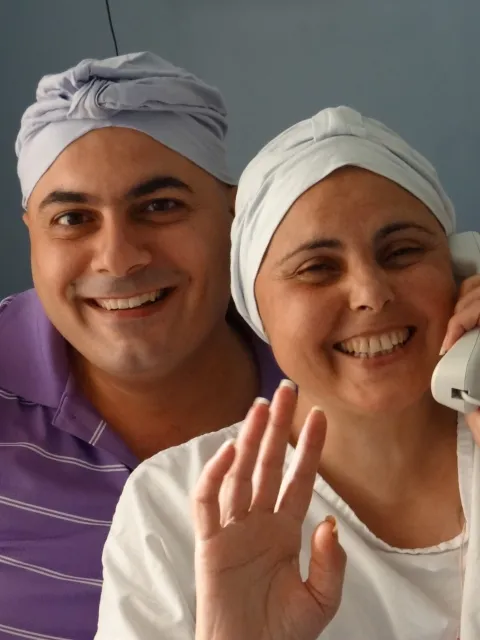The vital role of patient advocacy in cancer control
Patient organisations have a critical role to play in cancer control, by raising awareness, informing policy decisions, and empowering people living with cancer and their families by providing a platform for them to be heard.

March organised by the patient organisation IMAMA (Instituto da Mama do Rio Grande do Sul), Brazil, to raise awareness about breast cancer during Pink October.
HIGHLIGHTS
- People living with cancer and their families need greater representation through patient group organisations, who allow healthcare providers and policymakers to better understand the patient's needs and experiences, which is critical to improving quality of life and treatment outcomes.
- Patient advocacy also consists of improving health literacy, advocating for improved cancer prevention, treatment and care, and organising educational initiatives to support the translation of patients' experiences into policy and practice.
- UICC has developed a number of initiatives to respond to the needs of patient organisations and support their growth, including Master courses and the Patient Group Mentoring programme, providing patient advocates with the knowledge, skills, and confidence to engage with policymakers and become effective agents of change in cancer control in their region.
The unique experiential knowledge and perspectives of patients complement those of healthcare professionals and researchers, providing fundamental insights into the impact of cancer and the realities of cancer care. Their perspective is invaluable to advocates and policymakers in developing cancer control policies and working to ensure effective and efficient healthcare systems.
A primary role of patient organisations is contributing to health literacy and empowering patients and their families by providing them with information, resources and support. This can include information about cancer prevention, screening and treatment options, as well as emotional and psychological support for patients and their loved ones.
“Patient organisations bring the collective patient voice to the forefront, allowing people living with cancer to draw attention to issues that may have been overlooked. This helps healthcare providers and policymakers understand the patient's journey, their needs and experiences, which is critical to improving quality of life and treatment outcomes.”
– Dr Kirstie Graham, Director of Capacity Building, UICC
Bringing insights from their lived experience, patient organisations are also strong advocates for cancer prevention, raising awareness about cancer risks and encouraging the adoption of healthy lifestyles. This includes advocating for policies that reduce people’s exposure to known carcinogenic products, such as tobacco, alcohol and unhealthy foods, and to increase access to routine screening for common cancers and vaccinations (for instance, against the human papillomavirus (HPV) or hepatitis B (HepB), which are known causes respectively for cervical cancer and liver cancer).
According to a report by the European Patients' Forum, “Through representation, mobilisation and empowerment, patient groups combine individual and social actions to gain political commitment and public support for specific patient and general population health issues.” They can organise educational initiatives and invest in workshops, seminars, webinars and other programmes for policymakers, as well as industry leaders, academics and the media – all of which support the translation of their experiences into policy and practice.
Health research is also an area where patient organisations can help to ensure the inclusion of people living with cancer in relevant studies. Patients have the moral right to be involved in clinical research, since they are directly affected by the outcomes, and their knowledge of the disease and its effects can complement the scientific or biomedical knowledge. Studies have shown that innovations in treatment and care are more likely to achieve results when patients are included early in research and research policy.
UICC’s focus on patient engagement
Patient organisations comprise about 40% of UICC’s membership, including global patient coalitions. Deeply committed to supporting patient engagement and raising the patient voice in cancer control, UICC has developed a number of initiatives to respond to their needs and support their growth, particularly those in low- and middle-income countries.
Last year, UICC organised a Master course on “Raising the voices of patient advocates", an online learning opportunity designed to equip patient advocates with the knowledge, skills and confidence to engage with policymakers and become effective agents of change in cancer control in their region.
The course covered a wide range of topics related to patient advocacy, including patient engagement, advocacy tools and communications. Participants in the course had the opportunity to learn from experienced patient advocates, share experiences, and practice how to engage successfully with policymakers.
"UICC’s Master course on patient advocacy has been invaluable in helping me develop my advocacy skills. Before the course, I felt unsure about how to approach policymakers and decision-makers, but now I feel confident in my ability to make a difference.”
– Sarah Kelly, a participant in the UICC's Master course on raising the voices of patient advocates
This latest course builds on another developed in 2021, titled, Multisectoral approaches for patient engagement for better cancer control, that continues to be available on-demand for UICC members.
UICC’s Patient Group Mentoring programme is also a dedicated learning and development opportunity that provides tailored and dedicated support to patient organisations in low and middle income countries to become agents of change in their national landscape. Through mentorship, training and grants, the programme provides opportunities for involvement in regional and international convening platforms, raises the organisations’ profiles, and offers exclusive webinars and online courses to further explore and understand the value and opportunities for patient engagement and advocacy.
UICC's Patient Group Mentoring programme is currently active in the Asia Pacific and Eastern Mediterranean regions, as there are a significant number of patient groups in the former, with a greater need for more patient organisations in the latter.
From cancer survivor to advocate
Three women have led successful patient advocacy to improve cancer support services in their countries. Read more.
Based on data collected directly from the participants in the programme, a study co-authored by Dr Mélanie Samson of UICC was recently published in the JCO Global Oncology on the barriers and challenges preventing cancer patient organisations (CPOs) from being more involved in discussions on national cancer policies and building more equitable access to care.
The study showed that a lack of knowledge about cancer and cancer policies, low recognition of CPOs as key stakeholders and insufficient funding were the main barriers to greater engagement. Capacity building in health literacy, research processes and policy-related topics, as well as providing training and credentials to “patient experts” engaged in patient groups are among the more effective actions to overcome these barriers and include the voice of people living with cancer in policymaking.
Last update
Friday 21 April 2023
